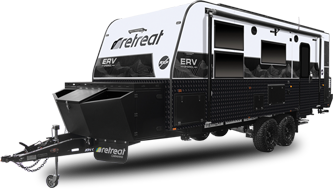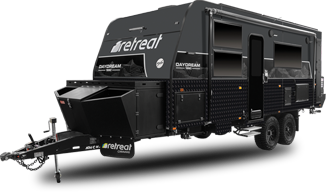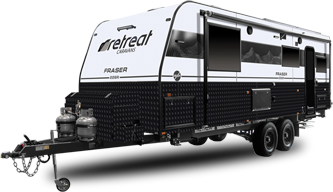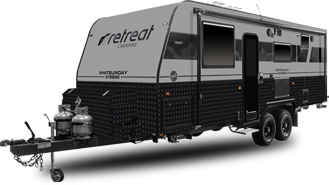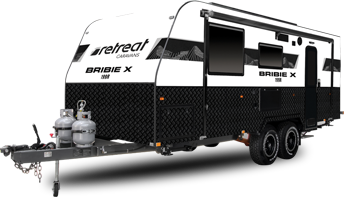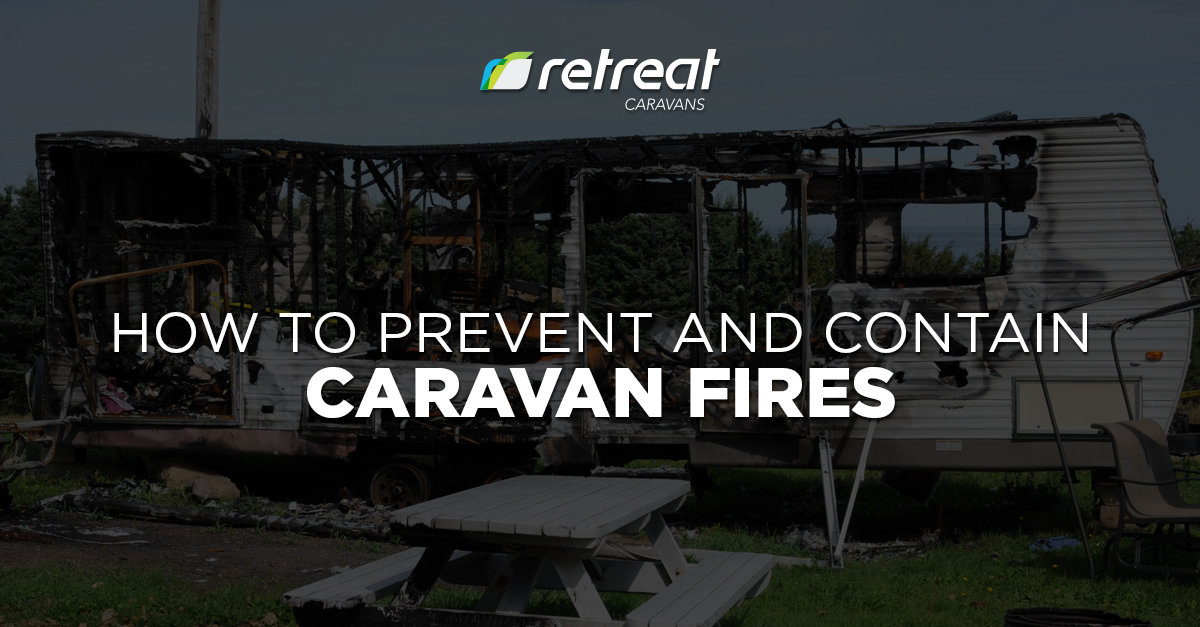
How to Prevent and Contain Caravan Fires
In addition to the periodic maintenance and safety checks, there are many easy and affordable ways to protect you and your caravan from life-threatening fire hazards. Akin to natural disasters such as a flood or an avalanche, fire damage can be 100% destructive!
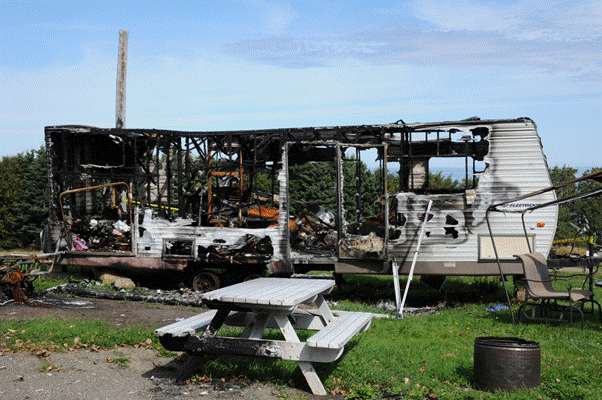
If you do not have caravan insurance, get it ASAP to ensure that your life and property has a physical guarantee for medical and property claims.
A caravan fire results in 9 times more damage than a typical house on fire. It is also more vulnerable to catching fire, that even a neglected tiny bird’s nest can possibly cause a caravan fire just as driving.
Making your caravan fire-proof
If you want to make your caravan safe from fire hazards, you must conduct multiple safety and maintenance checks prior to your caravanning trip.
First, assess the way you use your caravan. Simple measures to prevent the occurrence of fire include:
Cylinders outside the Caravan
Ensure that your cylinders in the caravan are safely maintained. Store the external cylinders in an opposite direction to the rig.
Ensure that your gas cylinders are always placed outside the van and maintained in an off position when not in use. Further, full-time caravanners must also ensure that the cylinder is empty prior to disconnection as well as replacement process.
To avoid gas leaks and subsequent fire hazards, ensure that your empty cylinders are stored in an open space and locked with a strong strap or something similarly strong.
Use of Appliances
All electrical wirings must be safely setup in a caravan to avoid a gas leak turning into a fire hazard.
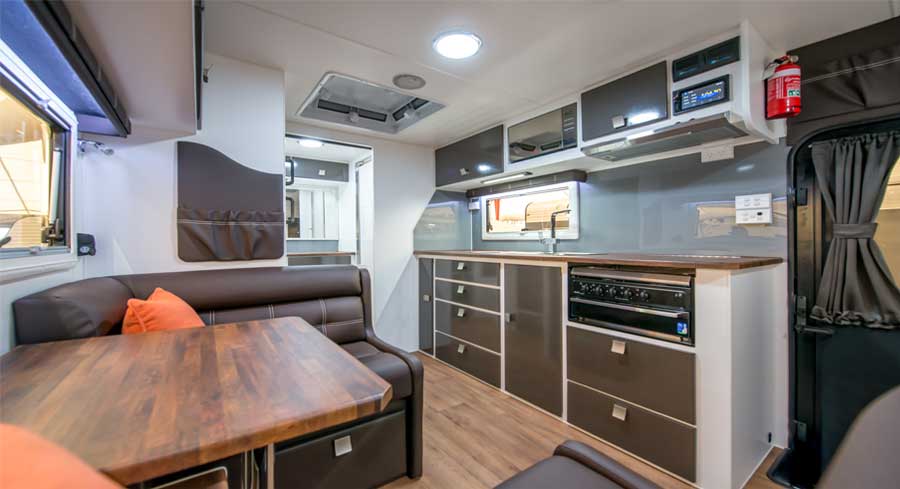
Ensure that you check the health of all your caravan appliances, especially high-drain equipment by taking the assessment of a certified electrician periodically. Most BBQ fire hazards according to caravan insurance claims arise from tumbling over of appliances. You must ensure that all the appliances are in an off position when you hit the bed.
Moreover, also ensure that the appliances are regularly serviced to avoid fire threats.
Never store fuel beneath caravan
Avoid using fuel types such as diesel, paraffin or petrol when attempting to light your caravan indoor stove. Never store the fuel beneath your caravan. Moreover, you must ensure that the cylinder is always stored at a levelled ground too. Conduct periodical checks on the fuel tanks for cracks and leaks if you want a session of safe caravanning.
Fuel leaks are the biggest fire hazards, so the rule of thumb is to avoid using LPG, which is the most flammable fuel. Also, avoid carrying extra fuel if possible. Extra fuel should be placed in strong storage containers that will unlikely break.
Be updated with the weather
Keeping yourself updated with the weather report as well as wildfire prone zones to avoid catching fire. Bushfire prone areas of Down Under include Kalgoorlie, Sydney, Brisbane, Perth and Geraldton.
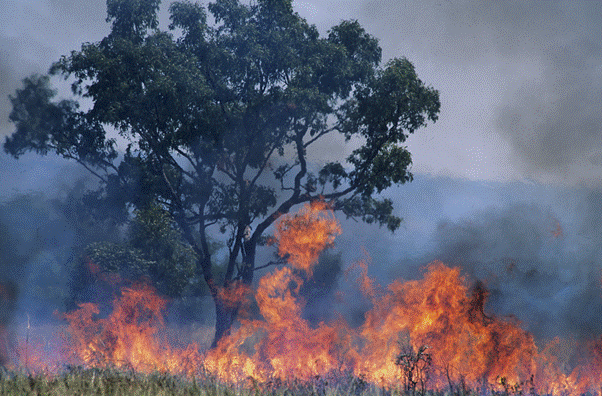
Never block the air vent
Yet another significant catalyst of a fire is the lack of ventilation in a rig. Never block the air vent of your rig. If a gas leak occurs when you’re asleep, you can become unconsciousness due to lack of oxygen in case a fire occurs.
Moreover, you should clean the air vents and ensure that there is ample ventilation in the heating area as well.
Avoid parking in grassy areas
When parking your caravan, avoid camp sites that has tall grass as these can easily catch fire. The same applies to parking spots with spinifex growth as the same is a fire hazard.
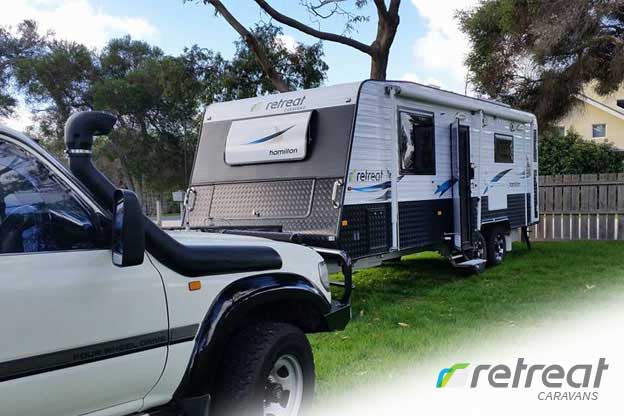
Safe Cooking
Cooking while moving is strictly prohibited as it is one of the major causes of fire. Moreover, setting up BBQ might scatter cinders or raise the heat, which may cause the awning fabric to catch fire.
In addition, never leave the stove unattended when cooking inside the van.
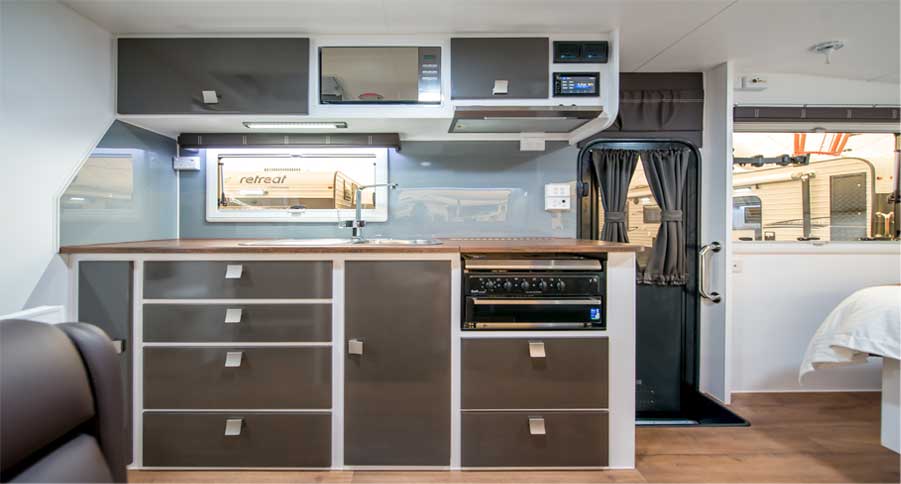
You must also remember to always keep a 2m distance from the caravan when cooking outside to prevent caravan fires and carbon monoxide poisoning.
Smoking Rules inside Caravan
If you’re a smoker, you are naturally at risk to caravan fires. Thus, it’s best to avoiding smoking inside the caravan or at least on your bed. Make strict rules about disposing of your cigarettes safely by using metal ashtrays when smoking within your rig.
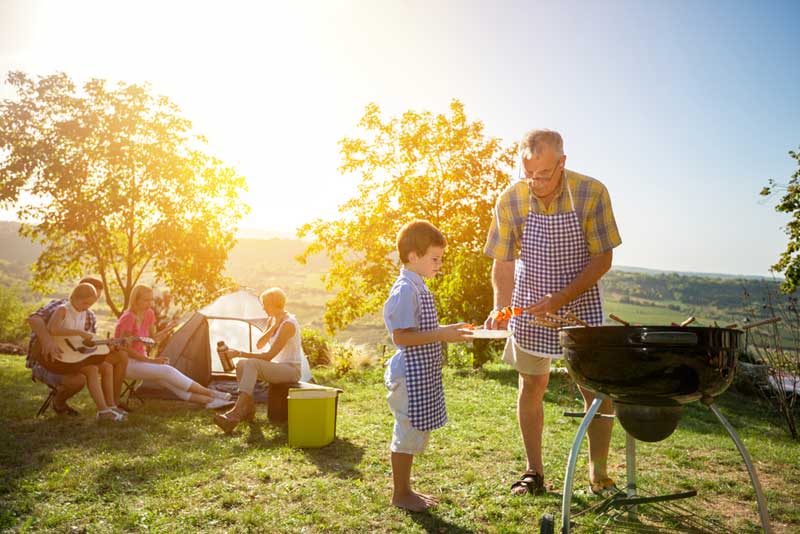
An additional tip to fireproof a caravan is by switching off the pilot lights when towing.
3 Tips to Stop Caravan Fire Hazards
Caravan fires most frequently occur during storage, says records from caravan insurance. Next on the list is when the caravan is on the road.
From engine to faulty electrical wiring, caravan fires are mainly caused by negligence and improper maintenance. The following are three brilliant ways you can effectively douse off fire in a caravan.
Have fire extinguishers handy
The most important equipment to prevent fire from spreading is a carbon dioxide fire extinguisher. To make sure your extinguisher is effective all the time, replace it every three years, it’s usual shelf life.
You must also test the fire extinguisher prior to each caravanning trip and keep a second extinguisher in the tow vehicle. Moreover, make sure you put fire extinguishers at an accessible location.
You can also keep a sand bucket or long hose that you can use in case a fire occurs.
Fire Blankets
To settle a small fire, a fire blanket will suffice. Fire blankets are made of fire resistant material. Select a fire blanket that can withstand temperatures of up to 500 0C. Place the fire blanket next to your exit door.
As most fire blankets have no date of expiry, they are considered durable by full-time caravanners.
Smoke Alarm
Also known as carbon monoxide detector, smoke detectors are typically installed next to the sleeping area in most caravans. Check if the ones in your caravan are certified compliant to Australian Safety standards.
To make the most out of a smoke detector, make sure you install it downwards. Inspect it before starting every caravanning trip. To make sure that the detector is working properly all the time by periodically replacing its batteries.
Conclusion
In addition, keep in mind these basic fire prevention measures.
Clean your parking space prior to parking and avoid parking around twigs or dry foliage that is capable of easily lighting up into wildfires.
In the event of a fire, do not panic. Calm down and ensure that you do not re-enter the caravan. Moreover, never leave kids alone locked inside your rig.
If you notice a caravan burning, dial 000 for emergency ASAP!



